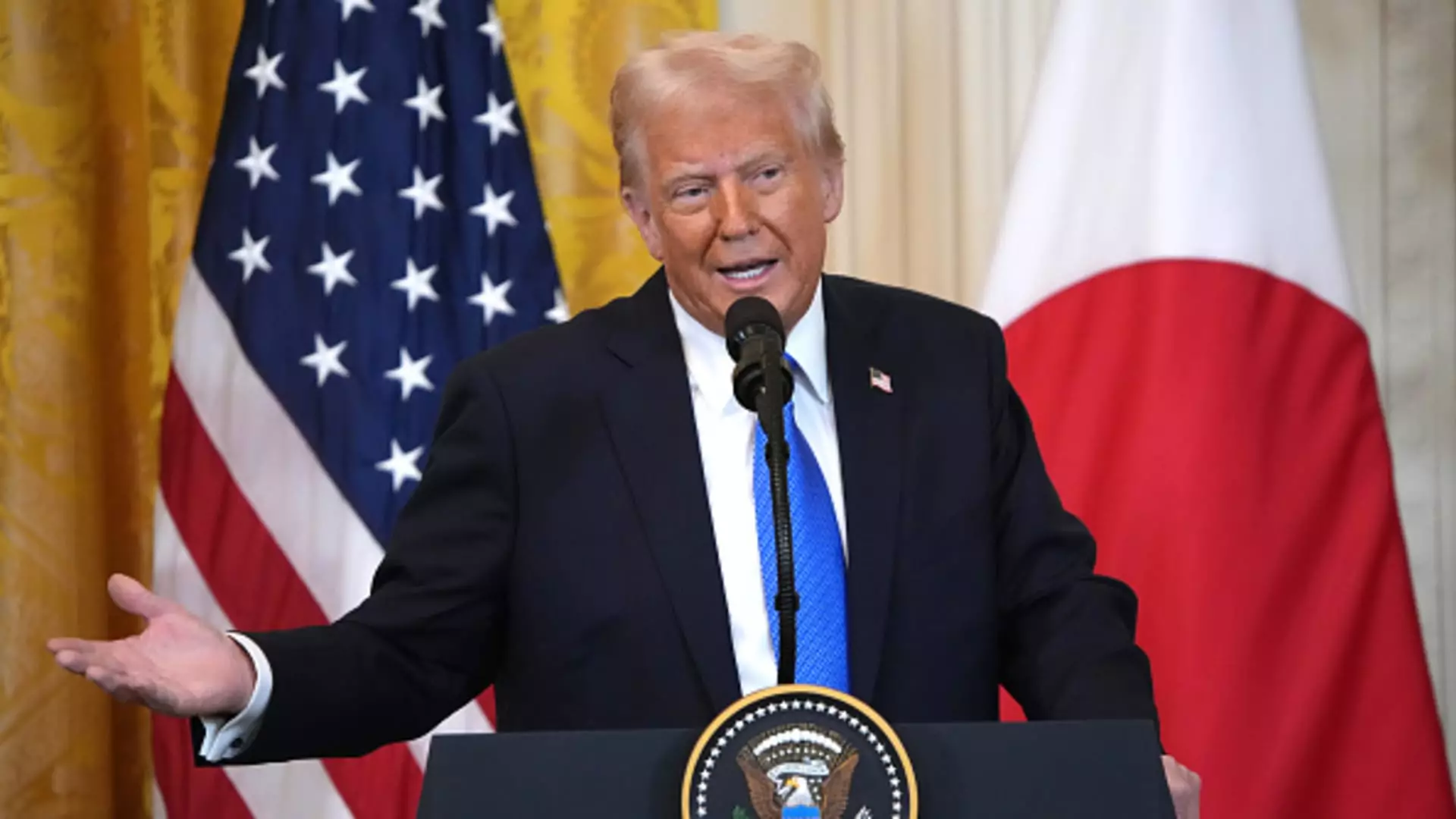The recent announcement of a colossal trade deal between the United States and Japan, heralded by President Trump as “perhaps the largest deal ever made,” seems poised to reshape economic landscapes. At first glance, the agreement promises a flood of Japanese investment—reportedly $550 billion—along with reciprocal tariff reductions and a projection of creating hundreds of thousands of jobs. Yet, beneath these optimistic claims lies a more complicated and arguably troubling reality, one that exposes the superficiality of such economic narratives and hints at underlying vulnerabilities within the broader global trade system.
While the deal boldly proclaims mutual benefits, the realities faced by industries and policymakers paint a bleaker picture. Japan’s auto exports, crucially decimated in recent months, are poised to regain momentum through lowered tariffs. However, this glosses over the fragility of the Japanese auto industry’s recent struggles—pandemic-induced disruptions, shifting consumer preferences, and mounting global competition. The projected revival hinges on a delicate and often unpredictable set of market conditions, making the promised “growth” more fragile than it appears.
The Myth of Win-Win Negotiation in a Shifting World
The framing of this agreement as a “reciprocal” deal, with both nations reaping shares of profit, idealizes the dynamics of international trade. In practice, the U.S. leverage—bolstered by its political clout and economic dominance—raises questions about the fairness of such reciprocity. Is Japan truly on equal footing in these negotiations, or is this a strategic facade designed to placate domestic audiences while subtly consolidating American influence?
Moreover, claims that Japan’s lucrative market access will translate into “hundreds of thousands of jobs” should be viewed with skepticism. The global market is characterized by automation and technological disruption, which often diminish the direct job-creating effects of trade agreements. Instead, these deals risk reinforcing the myth that larger trade pacts automatically lead to wide-scale employment growth, ignoring the nuanced realities of labor markets in the U.S. and Japan alike.
The Political and Economic Specters Looming Over the Deal
The timing of this deal coincides with significant political turbulence in Japan, where Prime Minister Shigeru Ishiba faces uncertain leadership amid electoral setbacks. The deal’s positive reception could serve as a political lifeline, but it also exposes the uneasy intersection of economic policy and internal politics. An apparent boost to Japan’s markets and auto stocks might be short-lived if leadership shifts or domestic dissent override the current optimism.
For the U.S., the agreement appears as an assertion of dominance—yet it risks entrenching a cycle of protectionism and economic dependency. The narrative of “opening markets” often masks the reality of strategic concessions and the perpetuation of a fragile global supply chain vulnerable to geopolitical shocks. Furthermore, the inclusion of potential future deals, such as those involving liquified natural gas or Europe, stretches the optimism into questionable territory, hinting at broader ambitions that could backfire in unpredictable ways.
This new trade framework, despite its bold proclamations, underscores the illusions often embedded within political and economic rhetoric. While the promise of massive investment and job growth sounds appealing, the underlying issues—market fragility, geopolitical influence, and the inherent limits of bilateral diplomacy—reveal a more complex and less certain reality. Rather than heralding a new era of prosperity, this deal exposes the persistent risks of oversimplified narratives that prioritize superficial economic gains over sustainable, equitable growth. It is a stark reminder that in the global economy, appearances can be deceiving, and true progress requires more than just grandiose declarations—what’s needed is a deliberate, resilient approach rooted in fairness and long-term strategy.


Leave a Reply